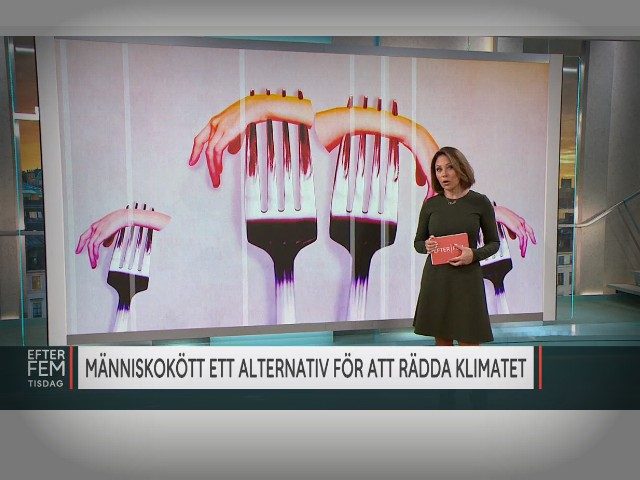Swedish behavioural scientist Magnus Söderlund has suggested that eating other people after they die could be a means of combatting climate change.
The scientist mentioned the possibility of cannibalism during a broadcast on Swedish television channel TV4 this week about a fair in Stockholm regarding “food of the future”.
Söderlund is set to hold seminars at the event, entitled “Gastro Summit — about the future of food” where he intends to discuss the possibility of eating people in the name of cutting down greenhouse emissions.
According to his research, the main problem with the idea is the widespread taboo of eating human flesh and said that conservative attitudes could make it hard to convince Swedes at large to take up the practice of cannibalism.
Regardless of the likely immense resistance to the idea of eating people, Söderlund said it was important to examine different options in the name of sustainability.
Söderlund is not alone in his call to reject the taboo of cannibalism. Last year, noted atheist and evolutionary scientist Richard Dawkins advocated for lab-grown meat and suggested it may be used to “overcome our taboo against cannibalism”.
Psychologists Jared Piazza and Neil McLatchie of Lancaster University also questioned the taboo on cannibalism in an article for Newsweek last month but ultimately did not endorse breaking it.
Cannibalism is not the only “alternative meat” advocated by climate change activists. Many have embraced plant-based meat imitations, while others have put their support behind “meat” made of insects as a way to cut down on greenhouse emissions and save on land and water use.
A YouGov poll in the UK found that 37 per cent of respondents thought that the number of food products containing insects would grow in the next ten years.
Last year in the German city of Aachen, shoppers were invited to try burgers made of buffalo worms with mixed reactions from the public.

COMMENTS
Please let us know if you're having issues with commenting.